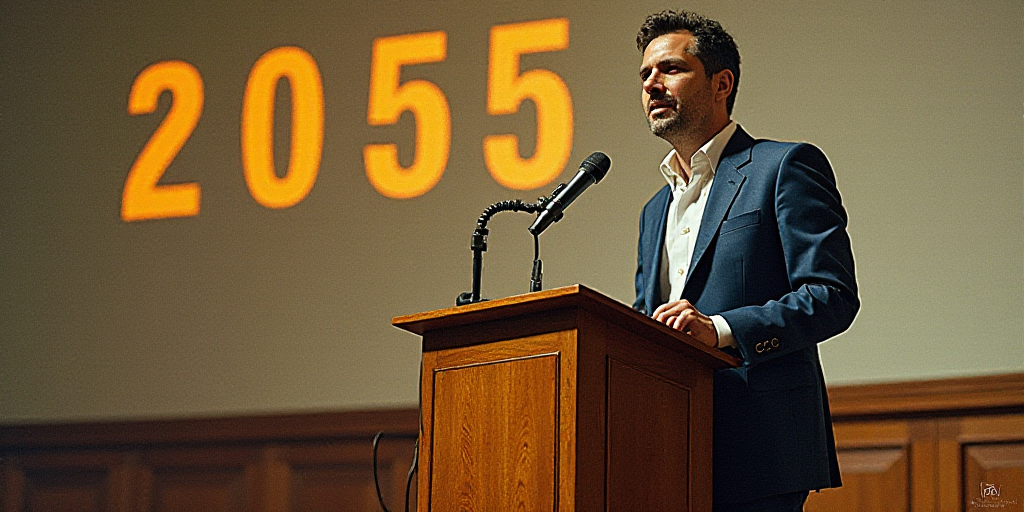Background on Eduardo Clark and His Role
Eduardo Clark, the Undersecretary of Integration and Development of the Health Sector, is a key figure in Mexico’s healthcare system. His recent announcement regarding the restart of medication tenders for 1,139 keys is crucial to ensuring an uninterrupted supply of essential medications for the next 18 months.
Current Situation and Recent Developments
Clark reported that the process to restart the medication tender, which had been declared null due to irregularities such as overpricing, began on April 28. The aim is to secure a steady supply of medications for the following 18 months.
- Over the recent months, 435 million units of healthcare supplies have been received.
- Between April 1 and 24, hospitals and state warehouses received 148 million units.
- Clark assured that there has been no shortage of deliveries or supplies, and medical insumos will continue to reach various health institutions.
Additionally, approximately 331 million units are scheduled for delivery in the coming weeks. The ongoing deliveries occur while an investigation into the medication tender for the 2025-2026 period is underway due to irregularities like overpricing.
New Contracts and Transparency
Clark explained that they have entered the final stage to sign new contracts, aiming to assign new providers to most medication keys within less than a week.
- Contracts will only be granted to companies that have met delivery requirements, technical, legal, and administrative standards, and offer the best prices for health institutions.
- This process, concluding on May 5, seeks transparency and legal compliance with collaboration from the Secretaría Anticorrupción y Buen Gobierno.
Investigation and Subsequent Actions
Clark mentioned that in cases of identified overpricing and supplier non-compliance, such as failing to deliver orders or falsifying documents, reverse auctions have been initiated.
- By the upcoming deadline (May 5), more than two-thirds of the required pieces will have new contracts, enabling formalization, reordering, and restoration of normal supply.
- Following this, reverse auctions will take place for the remaining keys.
Oncology Medications and Recent Acquisitions
Clark reported that in the past two weeks, reverse auctions have been conducted to acquire medications for a three-month period, including 21 oncology keys.
- These auctions confirmed suspicions of overpricing; for instance, keys previously purchased at 20,000 pesos were offered by the same supplier at 4,000 pesos post-auction.
- The majority of high-cost oncology medications, like monoclonal antibodies, continue to be procured through direct allocation due to their single-source or patented nature, ensuring uninterrupted hospital supply.
In the past, 21 million units of medications were acquired, with 500,000 being oncology keys previously marked by overpricing. These 21 keys are part of a total of 190 oncology keys that Mexico requires, while the remaining 169 keys are being regularly delivered to hospitals.
Health institutions in the country demand approximately 25 million oncology medication units over the coming years. They have also initiated urgent procurement of 154 medication keys for three months, achieving nearly 250 million pesos in savings through negotiations compared to previous licitation prices.
Key Questions and Answers
- What is the purpose of restarting the medication tender? To ensure an uninterrupted supply of essential medications for the next 18 months.
- What measures are being taken to avoid overpricing? Strict supplier rules, close monitoring of participation, and finding better pricing, delivery, quality, and compliance conditions.
- Which medications have been affected by overpricing? Oncology medications, specifically high-cost ones like monoclonal antibodies.
- How many medication keys are involved in this process? 1,139 keys, including 190 oncology keys.
- What is the timeline for this process? The process will conclude by May 5, with new contracts assigned and reverse auctions conducted for remaining keys.
“Clearly, the strategy to curb these overcosts is demonstrating that by setting clear procurement rules and being meticulous about supplier participation, we are finding better pricing, delivery, quality, and compliance conditions,” Eduardo Clark emphasized.






